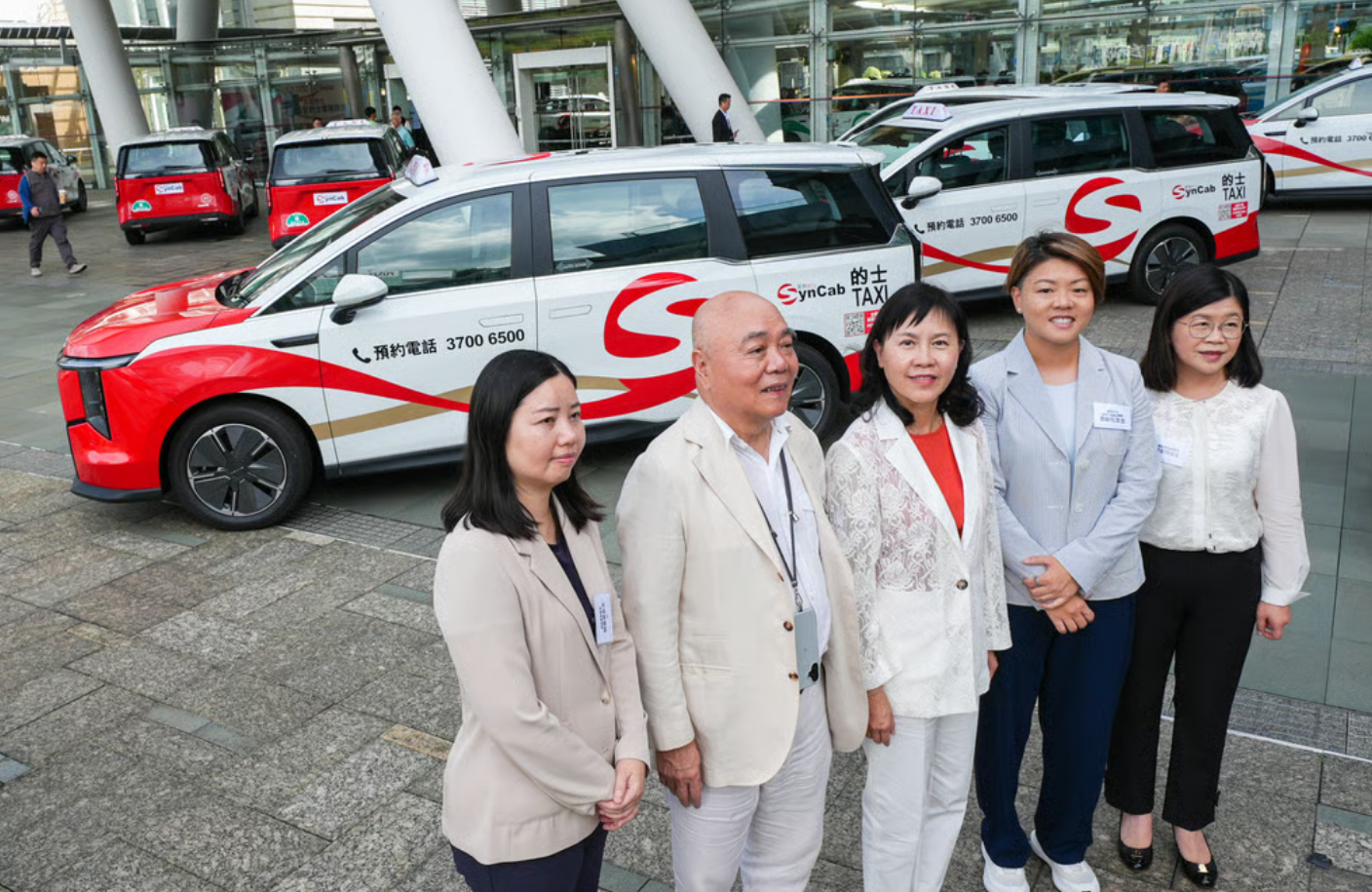Hong Kong’s first fully licensed premium taxi fleet hits the streets with 160 cabs
South China Morning Post 2025.07.14
 Secretary for Transport and Logistics Mable Chan (centre) says SynCab can show the way for the city’s new premium taxi service.
Secretary for Transport and Logistics Mable Chan (centre) says SynCab can show the way for the city’s new premium taxi service.
Hong Kong launched its much-awaited premium taxi service on Monday, as the first operator to receive a full licence hit the streets with its 160 cabs after completing a trial run.
SynCab showcased its vehicles during a launch ceremony attended by Secretary for Transport and Logistics Mable Chan, who said she expected the company would help the public see the clear path forward for the development of higher-end taxis.
She also stressed the importance of training drivers to ensure good service.
“Trained drivers can give residents confidence, and fleet management can allow them to accept online orders with peace of mind on one hand, while also being able to pick up street hails,” Chan said.
“I hope the taxi fleet cherishes and values its advantages. The taxi industry’s development hinges on retaining its distinct features and fostering competition, which drives advancement.”
Authorities in March said the city aimed to roll out 3,500 premium taxis.
SynCab is one of five providers selected by authorities to operate the fleets, alongside Joie, Big Boss Taxi Company, CMG Fleet Management and Sino Development.
The company is the first to be granted a full licence.
The premium taxis, which charge higher fares than regular cabs, are part of a push to raise standards in an industry that has gained a reputation for poor service and bad practices.
SynCab’s fleet of 160 six-seater vehicles completed about 110,000 trips during a trial period that began in December and ran through the first half of this year.
Drivers earn on average 30 per cent more than those working with regular taxis, according to the company.
Sonia Cheng Man-yee, founder and executive director of SynCab, said the company had enough drivers to operate the current fleet but did not reveal how many had been hired.
“The demand will subsequently increase once the public knows about the platform. We are confident that passenger demand and vehicle and driver supply will both rise,” Cheng said.
The 160 cabs available represent 37 per cent of SynCab’s original target of 425, while the company has said it hopes to expand to 5,000 in five years.
SynCab partnered with the civil engineering department of the University of Hong Kong to develop the city’s first artificial intelligence-powered smart taxi dispatch system, which uses real-time demand data, as well as information on cab locations and traffic, to optimise the allocation of vehicles and suggest routes to improve efficiency.
Since May, SynCab and Joie have been allowed to pick up pre-booked passengers at designated locations within prohibited zones at the Shenzhen Bay Port and the local checkpoint of the Hong Kong-Zhuhai-Macau Bridge on a trial basis.
All taxi fleets are mandated to offer online hailing services, maintain customer hotlines and provide various electronic communication channels, allowing passengers to select vehicles based on their specific requirements and to rate driver performance.
The cabs are also required to accept a range of electronic payment methods, including Octopus and credit cards. Driver monitoring systems must be installed in all the taxis, a measure aimed at enhancing both passenger convenience and safety.
SynCab’s app showed a prepaid ride in a six-seater Maxus Mifa T electric vehicle from Causeway Bay to Hong Kong International Airport would cost HK$465 at 5.30pm on Monday, or 27.3 per cent higher than a HK$365 fare for a regular cab booked on FlyTaxi’s app.
